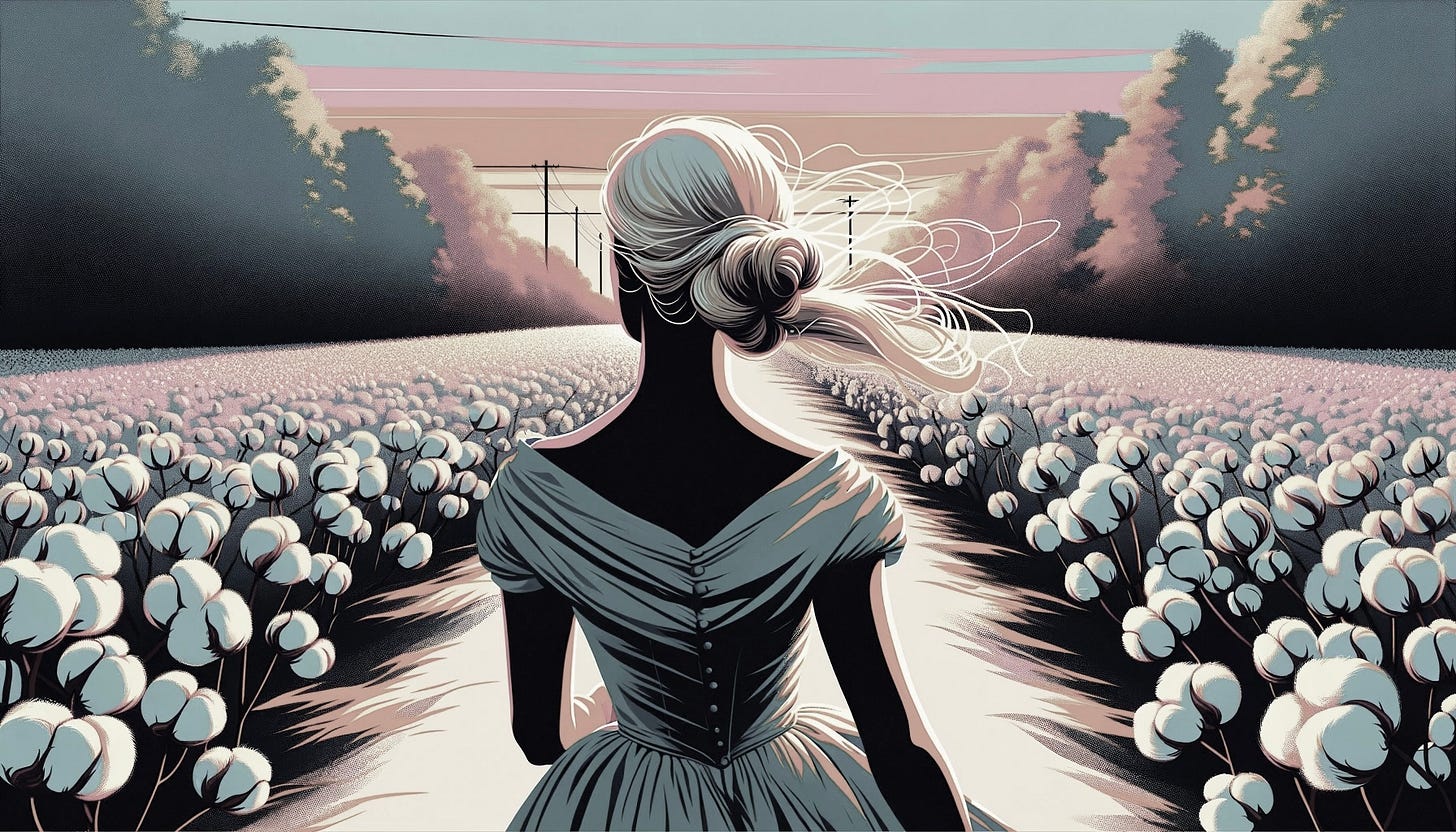I Hate It Here Too, Taylor
Taylor Swift and racial blind spots
There was a trope in early ‘90s television of the "racism special episode." The plot varied: a friend or neighbor revealed themselves to be a bigot, or a Black or Brown character was bullied and defended by the white star, or a racist slur graffitied on a school wall would start "a conversation.” Ironically, many all-white shows had to hire Black or Brown guest actors for the episode. It was a convenient virtue signal for the audience at a racially volatile time when Rodney King, the LA Riots, and OJ Simpson dominated headlines. Racism was portrayed as a binary: you’re either “racist” or "not racist." It was a personal flaw instead of an entire system. Racism was a tumor that could be excised: clear-cut, easily identified, and fixed in the span of 22 minutes.
I thought about these episodes when I heard Taylor Swift’s new song, “I Hate It Here,” after the lyrics caused an uproar: "My friends used to play a game where we would pick a decade we wished we could live in instead of this. I'd say the 1830s, but without all the racists and getting married off for the highest bid. Everyone would look down ‘cause it wasn’t fun now. Seems like it was never even fun back then. Nostalgia is a mind’s trick.”
I enjoy some of Taylor’s music. I’m in awe of her cultural and financial power and her ability to create communal events. Frankly, I couldn’t believe the lyrics were real. Had her team not anticipated the outrage (or worse, were they banking on it?). Within minutes of its release, the 1830s line went viral.
Swifties leapt to defend it. They bemoaned haters taking it out of context, that Taylor was actually being anti-racist and warning against nostalgia, treated unfairly by people who hadn’t listened or understood it.
Trust me, we got it.
"1830s, but without all the racists," is a jaw-dropping simplification. It wasn’t just "racists”; it was the American legal and political system and an economy of subjugation for Black and Native Americans. But the real eye-rolls were for the lyric right after: "Everyone would look down 'cause it wasn’t fun now." It positions Taylor as the woke kid who ruined the fun by reminding her friends about racism and misogyny. As (mostly white) fans pointed out, it's simple on purpose, a child’s POV. It seems Taylor’s fan base infantilizes and allows her to function in a vacuum when things get dicey.
This was echoed by the many takes online outside of Taylor’s vacuum, especially from Black women, who jumped in to give context. Their most common talking points were as follows:
Taylor can mine her girlhood in ways artists of color can’t because Black and Brown girls are often seen as adults. And Taylor having to remind her friends about slavery meant she had no friends of color in that game.
After Taylor’s then-boyfriend, Matt Healy, made racist remarks about Ice Spice, Taylor stayed silent but immediately featured Ice Spice in a song, which felt to many like opportunistic tokenism.
A root of Taylor’s narrative is "surviving" Kanye’s attacks but Taylor has not acknowledged how heavily she leaned on the lethal trope of a white damsel in distress and the "scary Black man."
The desire to go back to previous generations is mostly a white longing (as a Brown Gay man, you couldn’t pay me to go back to the 1990s, let alone the 1800s).
Taylor has been very quiet about Gaza, the protests, and the 2024 election, which threatens the rights of her core audience of women and Gays. Staying silent about current political issues but offering disclaimers about the 1830s seemed tone-deaf. Some also wondered how different it would have been if Taylor had just said: "1830s without slavery" with her whole chest.
In comments and videos, fans claimed it was unfair to factor these issues into "I Hate It Here” and that it should be allowed to exist as a poem (I got DM essays about this). Yet, Taylor’s marketing depends on fans linking every title and lyrical Easter egg to her personal life.
Take the song "thanK you, aIMee." The capitalized letters spell KIM, and the song reignites her decade-old feud with Kim Kardashian. Naturally, Swiftie TikTok flooded with the history of the Taylor vs. Kimye war and why it was funny and fair game that Taylor brought up Kim’s daughter (oof). When it came to that song, its context in Taylor’s life was perfectly OK. Yet the lyrics in "I Hate It Here" have to exist outside of Taylor’s personal and business choices. Why the double standard? Why do her fans have such difficulty admitting it was a problematic lyric?
Taylor’s brand brings in more cash than a small country, so it’s not surprising it steers clear of politics. To choose now for a “cute” and literally antiquated virtue signal about such a loaded topic is bizarre. It thrusts her into race conversations she is not equipped for. Taylor’s lyrics can make the personal feel communal but it worked against her here, exposing a stunted worldview while expecting to be rewarded for it. She’s not a young girl learning about the world. She’s a thirty-four-year-old billionaire who is over-exposed but politically disengaged.
Taylor’s PR team will do a masterful job of recovering but they won’t be able to wrap this racism episode up before the credits roll.
More pop culture deep dives in my debut book “POST,” from Ozempic to the Kardashians, plastic surgery to porn. Order here.




